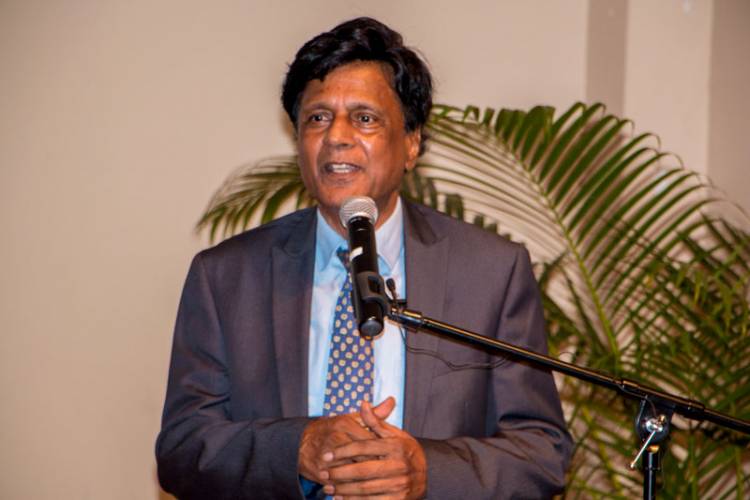ROAR of Ravi Dev
Returning from a CARICOM mission of Prime Ministers, to broker an end to our elections impasse, T&T PM Keith Rowley candidly predicted that things “will not end well”. The APNU/AFC coalition insists they won the elections even though local, international observers and the diplomatic community asserted the process had been subverted to favour them.
Even a casual perusal of our recent elections’ history would force one to concur with Rowley. Since the elections of 1992, the PNC’s rejection of adverse elections results has invariably been followed by violence inflicted on Indian-Guyanese – presumed supporters of the PPP. In 1992, the US pressured Desmond Hoyte to accept long-denied changes to the elections system to facilitate free and fair elections. The Carter Centre midwifed the changes. Raging mobs of PNC supporters, however, stormed the Elections Centre after it became clear the PPP was winning. Peace was only restored after Carter, who was in the Centre, threatened to call the White House. Hoyte backed down and called out the Disciplined Forces to restore order. The Indian-Guyanese Regent St business district, however, was invaded and a store torched.
An IFES report explained the PNC’s political strategy: “…as the disturbance at the Commission grew, some members of the PNC saw an opportunity to disrupt the election and shed doubt on the outcome. With the outcome in doubt, it would not make any difference if the final results indicated the PPP/Civic had won the election; the PNC could claim the results should not be declared official because it would have been impossible to certify the official returns.”
In Dec 1997, the PNC once again lost the elections and claimed they were cheated. They launched violent street protests and insisted Janet Jagan was illegally sworn in. When Justice Bernard ruled against them, massive riots broke out in the city where hundreds of Indians were beaten in Georgetown. CARICOM was invited in; an Accord was brokered; the PPP gave up 2 years of its term and agreed to constitutional changes to give more power to the PNC in Parliament. All of this was in the face of a “forensic audit” conducted by CARICOM, which showed the election results were valid.
The post-1997 violence merged into a heightened wave of criminal attacks and robberies mainly against Indian businesses. Sustained violence continued up to the 2001 elections, which the PNC again claimed they were cheated. This violence escalated exponentially after 5 criminals escaped from Camp St Prison on Republic Day, 2002. They ended up in Buxton and launched a direct attack on the state and putative PPP supporters in surrounding communities after declaring they were “African Freedom Fighters”. Hoyte was to enter Buxton and declare there were no criminals there.
Robert Corbin became PNC leader after Hoyte’s death in late 2002, but after the Buxton gunmen kidnapped the US Regional Security Officer, the US became directly involved. Eusi Kwayana claims they concluded, “that the violence was directly related to the PNC’s defeat at the March 19 2001 elections, which it felt it would win…(and) involved people in the PNC.” It is felt that the US then made two interventions: they brought pressure to bear on Robert Corbin to cut PNC ties with the bandits and secondly, assisted Raphael Trotman and Khemraj Ramjattan to launch the AFC.
In the 2006 elections, the PNC with Robert Corbin as leader again lost to the PPP, but did not dispute the verdict. Their votes were severely decimated by the Trotman-led AFC, which attracted a solid number of their traditional middle-class voters. Corbin was accused of “selling out” to the PPP but there was no post elections violence.
In the 2011 elections, with Ramjattan at the head of the AFC and Corbin having stepped aside for David Granger, the AFC now drew most of its support from erstwhile PPP Indian Guyanese supporters and reduced them to a plurality. They captured the presidency by were a minority in the National Assembly. The PNC did not complain about being cheated and there was no violence.
In 2015 the PNC-as APNU went into a pre-election coalition with the AFC and won the elections. There were no complaints and no political violence. In 2020, the PNC-as-APNU has once again complained about the electoral process and if they were to lose the elections, it is not difficult to conclude, as did Rowley, that “this will not end well”.
It is the IFES strategy – unless the US were to pressure Granger to back off.
